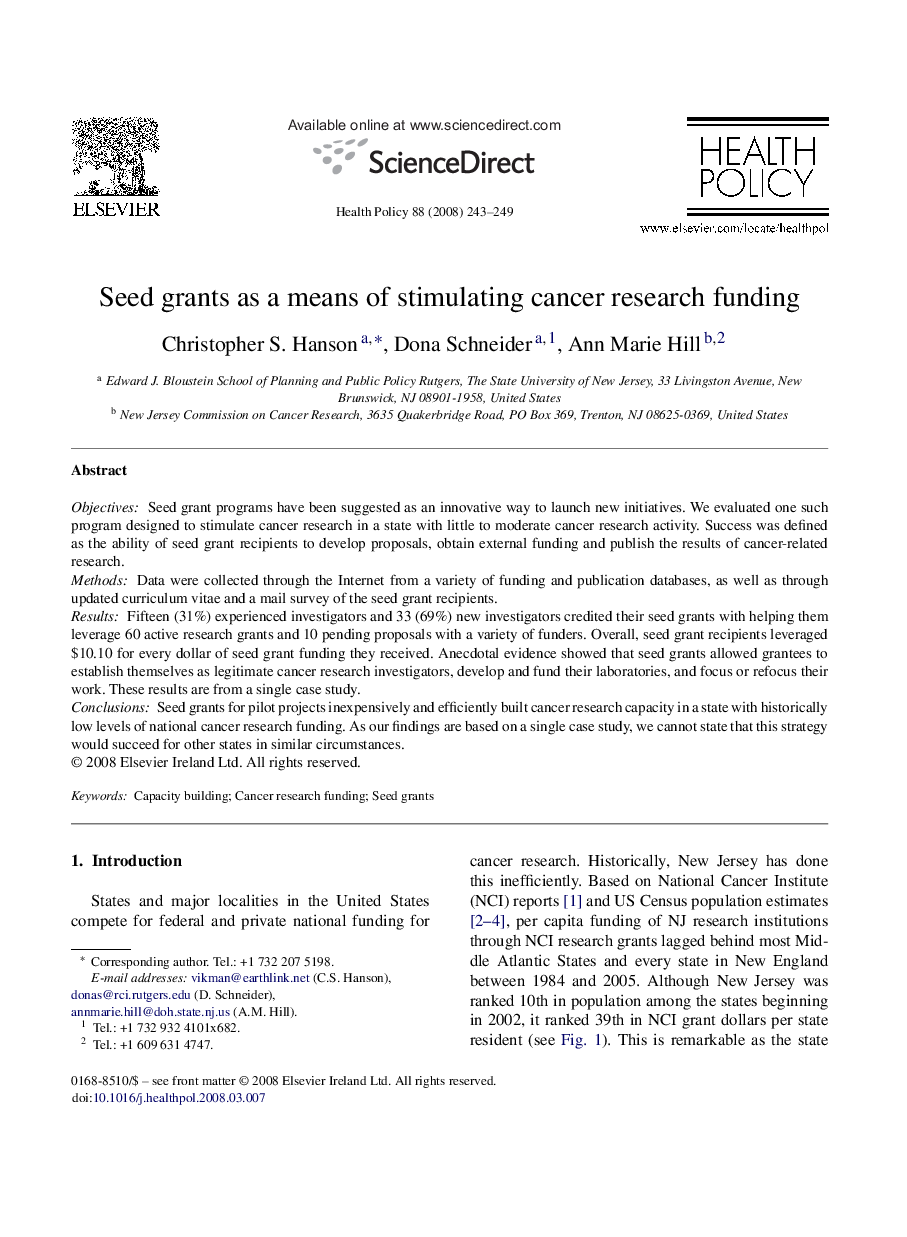| Article ID | Journal | Published Year | Pages | File Type |
|---|---|---|---|---|
| 4198809 | Health Policy | 2008 | 7 Pages |
ObjectivesSeed grant programs have been suggested as an innovative way to launch new initiatives. We evaluated one such program designed to stimulate cancer research in a state with little to moderate cancer research activity. Success was defined as the ability of seed grant recipients to develop proposals, obtain external funding and publish the results of cancer-related research.MethodsData were collected through the Internet from a variety of funding and publication databases, as well as through updated curriculum vitae and a mail survey of the seed grant recipients.ResultsFifteen (31%) experienced investigators and 33 (69%) new investigators credited their seed grants with helping them leverage 60 active research grants and 10 pending proposals with a variety of funders. Overall, seed grant recipients leveraged $10.10 for every dollar of seed grant funding they received. Anecdotal evidence showed that seed grants allowed grantees to establish themselves as legitimate cancer research investigators, develop and fund their laboratories, and focus or refocus their work. These results are from a single case study.ConclusionsSeed grants for pilot projects inexpensively and efficiently built cancer research capacity in a state with historically low levels of national cancer research funding. As our findings are based on a single case study, we cannot state that this strategy would succeed for other states in similar circumstances.
